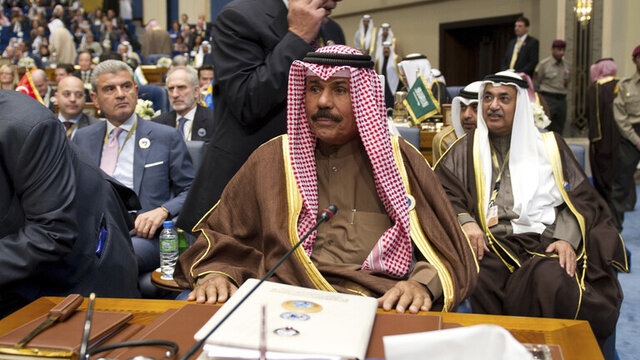While in recent months the two southern Persian Gulf states, the UAE and Bahrain, have publicly announced their readiness to normalize relations with the Israeli regime, which has been considered by the experts in the Islamic world as being against the Palestinian cause, Sheikh Sabah al-Ahmed al-Sabah, the new Emir of Kuwait has announced that his country will remain loyal to the legacy of Sheikh Sabah, the late Emir of Kuwait, in supporting the Palestinian cause and will take steps in line with his policies.
Now that differences between “Kuwait” and the “UAE and Bahrain” have arisen over the issue of Palestine, this question arises as to whether this issue would lead to the escalation of the old rifts in the Persian Gulf Cooperation Council, (P) GCC.
In response, it should be noted that this political difference among the countries bordering the Persian Gulf has existed and still exists but it cannot be considered as a deep rift between those countries. In fact, this difference has existed from the very beginning, and Kuwait has pursued and emphasized explicit, specific and independent positions with regard to the Palestinian issue. Regarding the announcement of the readiness of Abu Dhabi and Manama to normalize relations with Tel Aviv, the Kuwaitis have explicitly expressed their opposition by the Cabinet Ministers, the Foreign Ministry and the Parliament. Kuwait has stated that its position is the formation of an independent Palestinian state in the capital of Al-Quds Al-Sharif. Kuwait also reiterated that it would be the last country to establish relations with Israel if it is supposed to do so. What the Kuwaiti authorities have said is that they will not take measures to normalize relations with Israel. As the new Emir of Kuwait has emphasized the same position. Of course, in addition to Kuwait, Oman and Qatar have not agreed to normalize their relations with Israel and have practically postponed this issue to the future. However, Kuwait’s position has been more explicit than other countries, and the new Emir of Kuwait has explicitly stated that he will follow the policies of the late Emir of the country in all cases, including the Palestinian issue. Kuwait’s opposition to the normalization of relations with the Zionist regime goes back to its historical connection with the Palestinian cause as such that Kuwait was one of the first Arab countries to accept Palestinian immigrants. Kuwait also adheres to the values of Arab nationalism and Islamic solidarity, and does not take heed of US pressures to normalize relations with the Zionist regime under the pretext of the so-called ‘Iran threat.”
As for the objectives behind the normalization of the UAE-Bahrain relations with the Israeli regime, it should be noted that Bahrain is out of place, but the UAE officials should know that they are completely wrong if they seek to secure themselves with the presence of Israel in the region. Because countries such as the Islamic Republic of Iran have sent a very clear and public message to the UAE in this regard that the Zionist regime should not be dragged into the region and that they should not seek security with the support of that regime. Therefore, the Emiratis should pay attention to this issue, and if they continue to act in spite of these warnings, they will incur a heavy cost.
After the announcement of the readiness of Bahrain and the UAE for normalization of relations with Israel, we noticed that the Arab countries, unfortunately, failed to take a proper position, and perhaps in the Arab world only Algeria and Kuwait took a clear position, and it seems that the unity and consensus that existed on Palestinian cause has somehow faded away as such that even the Arab communities failed to adopt a proper position as at least it was expected that Arab nations would take a clearer and better position in this regard.
Finally, although the PGCC countries will not confront each other over the issue of normalization of relations with Israel and the overshadowing of the Palestinian issue due to external pressures, especially from the US, there are other differences that could deepen the gap in the Council, the most important of which is Qatar’s tension with Saudi Arabia and the UAE. This has led to the lack of coherence in the Cooperation Council. In such circumstances, the heterogeneous positions of the Council members on a probable agreement with Israel could widen the gap.










0 Comments